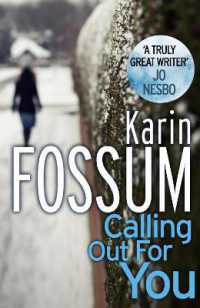Full Description
In The Ends of Meter in Modern Japanese Poetry, Scott Mehl analyzes the complex response of Meiji-era Japanese poets and readers to the challenge introduced by European verse and the resulting crisis in Japanese poetry. Amidst fierce competition for literary prestige on the national and international stage, poets and critics at the time recognized that the character of Japanese poetic culture was undergoing a fundamental transformation, and the stakes were high: the future of modern Japanese verse.
Mehl documents the creation of new Japanese poetic forms, tracing the first invention of Japanese free verse and its subsequent disappearance. He examines the impact of the acclaimed and reviled shintaishi, a new poetic form invented for translating European-language verse and eventually supplanted by the reintroduction of free verse as a Western import. The Ends of Meter in Modern Japanese Poetry draws on materials written in German, Spanish, English, and French, recreating the global poetry culture within which the most ambitious Meiji-era Japanese poets vied for position.
Contents
Introduction: Making Forms New, Making New Forms
1. New Styles of Criticism for a New Style of Poetry
2. "This Dead Form, Begone": The Shi of Kitamura Tkoku and the Debate over Meter
3. A Disaster Averted: Masaoka Shiki and the Value of Brevity
4. Difficulty in Poetry: Kanbara Ariake and the Experimenters in Prosody
5. Kawaji Rykoand the New Poetry
Epilogue: A Form to Express Anything Whatsoever








